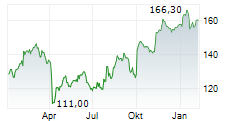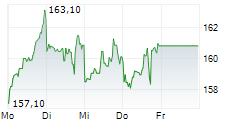22 September 2025
Koselugo recommended for approval in the EU by CHMP for plexiform neurofibromas in adults with neurofibromatosis type 1
Recommendation based on KOMET Phase III trial results which showed 20% objective response rate in tumour size reduction
Largest and only placebo-controlled, double-blind global Phase III trial in adults builds on established profile in children to address unmet needs
Koselugo (selumetinib), an oral, selective MEK inhibitor, has been recommended for approval in the European Union (EU) for the treatment of symptomatic, inoperable plexiform neurofibromas (PN) in adult patients with neurofibromatosis type 1 (NF1).
The Committee for Medicinal Products for Human Use (CHMP) of the European Medicines Agency (EMA) based its positive opinion on results from KOMET, the largest and only placebo-controlled global Phase III trial in this patient population, which were presented at the 2025 American Society of Clinical Oncology (ASCO) Annual Meeting and published in The Lancet.1
In the primary analysis of the trial, Koselugo showed a statistically significant objective response rate (ORR) of 20% (n=14/71, 95% CI: 11.2, 30.9) compared to 5% with placebo (n=4/74, 95% CI: 1.5, 13.3; p=0.01) by cycle 16.1
NF1 is a rare, progressive, genetic condition usually diagnosed in early childhood, but often progressing into adulthood, that can impact every organ system.2,3 Up to 50% of people living with NF1 may develop a type of non-malignant tumour called PN that may affect the brain, spinal cord and nerves.3,4 PN may appear later in a person's life and can grow and become large, leading to pain, disfigurement and muscle weakness, among other debilitating symptoms.3,4
Prof. Pierre Wolkenstein, MD, PhD, Head of the Department of Dermatology at Henri Mondor Hospital, APHP, Paris East University (UPEC), and National Coordinating Investigator of the KOMET trial in Europe, said: "For adults with NF1, tumour growth doesn't stop at childhood and can rapidly progress or develop into adulthood, impacting physical, emotional and social well-being. The positive recommendation by the CHMP for Koselugo in adults underscores the urgent need for additional targeted treatments for this patient population. When approved, Koselugo could offer a treatment option for adult patients and continuity of care across age groups, supported by established clinical experience and practice among doctors managing this lifelong condition."
Marc Dunoyer, Chief Executive Officer, Alexion, said: "The CHMP positive opinion of Koselugo in adults with NF1 PN builds on more than a decade of global clinical and real-world experience, reflecting the unmatched body of evidence supporting the safety profile and efficacy of Koselugo. As demonstrated by the results from KOMET, the largest and only placebo-controlled, double-blind global Phase III trial in an adult population, we continue to advance the pioneering legacy of Koselugo, which set the treatment standard in NF1 PN, to reach even more people worldwide."
The safety profile of Koselugo in the KOMET Phase III trial was consistent with its known profile and established use in paediatric patients.1
Koselugo has been recently approved in Japan and other countries for the treatment of adult patients with NF1 who have symptomatic, inoperable PN based on data from the KOMET Phase III trial, and additional regulatory reviews are ongoing.
Notes
NF1
NF1 is a rare, progressive, genetic condition that is caused by a spontaneous or inherited mutation in the NF1 gene.2,3 NF1 is associated with a variety of symptoms, including soft lumps on and under the skin (cutaneous neurofibromas) and, in up to 50% of patients, tumours called plexiform neurofibromas (PN) may develop on the nerve sheaths.3,4 These PN can cause clinical issues such as disfigurement, motor dysfunction, pain, airway dysfunction, visual impairment and bladder or bowel dysfunction.3,4
KOMET
KOMET is a global Phase III randomised, double-blind, placebo-controlled, multicentre trial designed to evaluate the efficacy and safety of Koselugo in adults with NF1 who have symptomatic, inoperable PN. The trial enrolled 145 adults from 13 countries across North America, South America, Europe, Asia and Australia, with participants' baseline characteristics, including gender and distribution of PN, reflective of the global adult NF1 patient population. Patients were enrolled and randomised to receive Koselugo or placebo (1:1) for 12 28-day cycles. Participants were required to have diagnosis of NF1, at least one symptomatic, inoperable PN measurable by volumetric MRI analysis, chronic PN pain score documented during screening, adequate organ and marrow function and stable chronic PN pain medication use at enrolment.1,5
The primary endpoint is confirmed objective response rate (ORR) by cycle 16 as assessed by ICR. ORR is defined as the percentage of patients with confirmed complete response (disappearance of PNs) or partial response (at least 20% reduction in tumour volume). Secondary endpoints include improved PN-related pain and health-related quality of life (HRQoL) at cycle 12.1,5
After 12 cycles, patients on placebo were switched to Koselugo and patients on Koselugo remained on treatment for an additional 12 cycles. Patients who had the opportunity to complete 24 cycles of treatment have the option to participate in a long-term extension period and continue to receive Koselugo.1,5
Koselugo
Koselugo?(selumetinib) is a kinase inhibitor that blocks specific enzymes (MEK1 and MEK2), which are involved in stimulating cells to grow. In NF1, these enzymes are overactive, causing tumour cells to grow in an unregulated way creating so-called plexiform neurofibromas (PN). By blocking these enzymes,?Koselugo?slows down the growth of tumour cells and, therefore, the PN growth.?
?
Koselugo is approved in the US, EU, Japan, China and other countries for the treatment of certain paediatric patients with NF1 who have symptomatic, inoperable PN.
Koselugo is approved in Japan and other countries for the treatment of adult patients with NF1 who have symptomatic, inoperable PN, and additional regulatory reviews are ongoing
Koselugo has been granted Orphan Drug Designation in the US, EU, Japan and other countries for the treatment of NF1.
AstraZeneca and MSD Strategic Collaboration
In July 2017, AstraZeneca and Merck & Co., Inc., Rahway, NJ, US, known as MSD outside the US and Canada, announced a global strategic collaboration to co-develop and co-commercialise?Lynparza?(olaparib), a first-in-class PARP inhibitor, and Koselugo. The companies may develop?Lynparza?and?Koselugo?in combination with other potential new medicines and as monotherapies.
Alexion
Alexion, AstraZeneca Rare Disease, is focused on serving patients and families affected by rare diseases and devastating conditions through the discovery, development and delivery of life-changing medicines. A pioneering leader in rare disease for more than three decades, Alexion was the first to translate the complex biology of the complement system into transformative medicines, and today it continues to build a diversified pipeline across disease areas with significant unmet need, using an array of innovative modalities. As part of AstraZeneca, Alexion is continually expanding its global geographic footprint to serve more rare disease patients around the world. It is headquartered in Boston, US.
AstraZeneca
AstraZeneca (LSE/STO/Nasdaq: AZN) is a global, science-led biopharmaceutical company that focuses on the discovery, development, and commercialisation of prescription medicines in Oncology, Rare Diseases, and BioPharmaceuticals, including Cardiovascular, Renal & Metabolism, and Respiratory & Immunology. Based in Cambridge, UK, AstraZeneca's innovative medicines are sold in more than 125 countries and used by millions of patients worldwide. Please visit?astrazeneca.com?and follow the Company on social media?@AstraZeneca.
?
Contacts?
For details on how to contact the Investor Relations Team, please click here. For Media contacts, click here.?
References
1. Chen, AP, et al. KOMET: a phase 3, multicentre, international, randomised, placebo-controlled study to assess the efficacy and safety of selumetinib in adults with neurofibromatosis type 1 and symptomatic, inoperable plexiform neurofibromas. The Lancet. 2025;405(10496):2217-2230.
2. Tamura R. Current understanding of neurofibromatosis type 1, 2, and schwannomatosis. Int J Mol Sci. 2021;22(11):5850.
3. Hirbe AC, et al. Neurofibromatosis type 1: a multidisciplinary approach to care. Lancet Neurol. 2014;13:834-843.
4. Bergqvist C, et al. Neurofibromatosis 1 French national guidelines based on an extensive literature review since 1966. Orphanet J Rare Dis. 2020;15(1):37.
5. ClinicalTrials.gov. Efficacy and safety of selumetinib in adults with NF1 who have symptomatic, inoperable plexiform neurofibromas (KOMET). NCT Identifier: NCT04924608. Available here. Accessed September 2025.
Matthew Bowden
Company Secretary
AstraZeneca PLC
This information is provided by RNS, the news service of the London Stock Exchange. RNS is approved by the Financial Conduct Authority to act as a Primary Information Provider in the United Kingdom. Terms and conditions relating to the use and distribution of this information may apply. For further information, please contact rns@lseg.com or visit www.rns.com.



